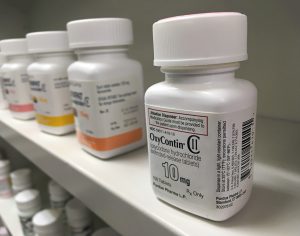If you have read any newspaper in the last year, you know that prescription opioids have caused massive suffering in this country. Addiction has skyrocketed. Sadly, deaths from overdoses and even opioid-related suicides have dramatically increased as well. In 2016 alone over 14,000 overdose deaths were reported from natural and semi-synthetic opioids, and over 20,000 people died of overdose from synthetic opioids (mostly fentanyl). Centers for Disease Control. Opioids have become a huge public health problem and a national tragedy. Inevitably, litigation has followed the suffering, and more lawsuits are being filed each week.
Despite the addictions, injuries, and deaths, and despite reports of awful business practices by the makers of these prescription painkillers, defense lawyers have developed certain legal defenses to help these drug companies avoid liability. Let’s look at a few:
The FDA Approved the Drug, So It’s the Government’s Fault
 North Carolina Product Liability Lawyer Blog
North Carolina Product Liability Lawyer Blog








